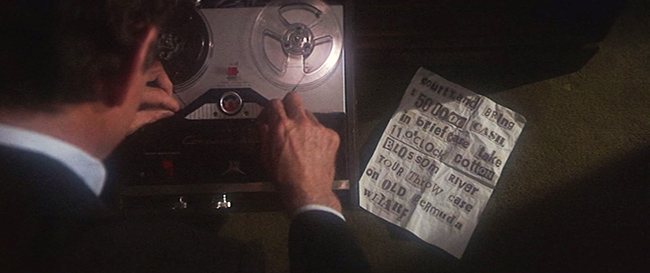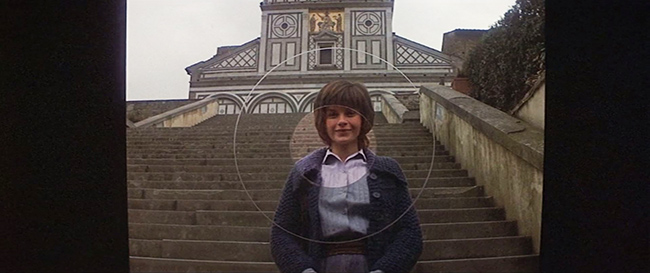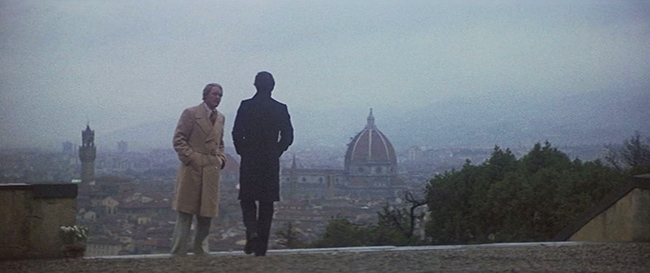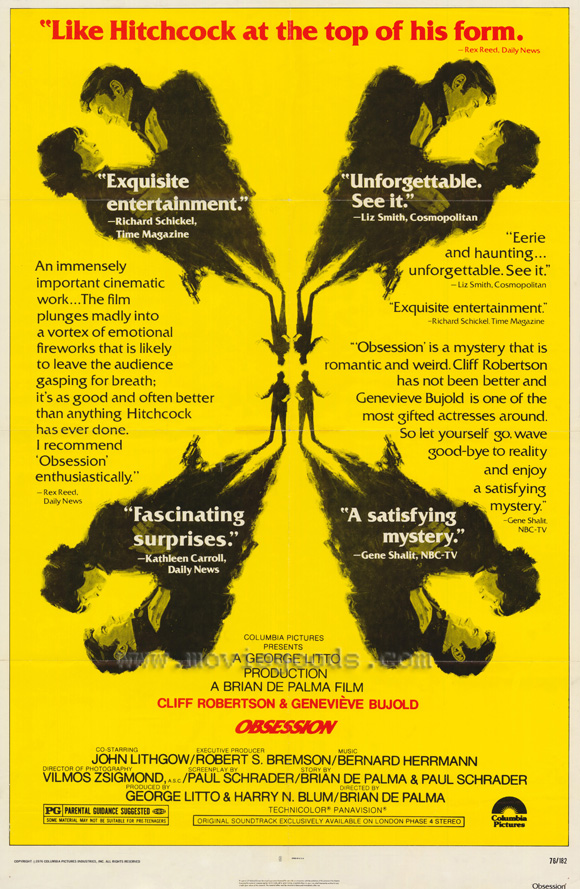
It’s impossible to discuss Brian De Palma’s Obsession (1976) without discussing Alfred Hitchcock, in particular Vertigo (1958), the film of which – for a good portion of its running time – this seems to be a remake. If you haven’t abandoned the film by the one hour mark in outrage that De Palma is just imitating the Master and – well, all those familiar criticisms that have been lobbed his direction over the years – you might start to realize that De Palma and screenwriter Paul Schrader very much expect you to be keeping Hitchcock in mind. Because in the last half hour the film finally begins to twist itself into a new shape, one that takes Vertigo – and, by this point, Rebecca (1940), which has been picked up at a corner stop and dragged along for the ride – down some pitch-black alley and into a very perverse destination indeed. I suppose the counter-argument is that Vertigo was plenty perverse for 1958, and has never stopped being perverse…which is true. One of the most shocking effects in Hitchcock’s original was witnessing the transformation of James Stewart, the embodiment of down-home American values, into a borderline sadist sexually obsessed with Kim Novak, fetishizing her hair and wardrobe, controlling her every movement to match his memory of a woman he lost. De Palma and Schrader take the premise of a man who can’t get over the woman he loved and take it a few steps past the boundary of good taste, which is what makes Obsession a movie for the 1970’s. There’s an in-joke in the script for that, too. The film begins in 1959 – one year after Vertigo – and fast-forwards to 1975. Through dialogue our protagonist is warned that the girl he’s discovered belongs not to his past but to 1975; it’s a clue that this won’t be warmed-over Hitchcock after all, but something very different, and a little dangerous. To De Palma’s detractors, he was living in the past, but you don’t have to look very hard at a film like Obsession to see that he was using the past to contrast it with the present, the Golden Age of Hollywood against the New.

In Florence, Sandra (Geneviève Bujold), is posed to restage the past.
What he’s lacking is a James Stewart to subvert the viewer’s expectations; instead, De Palma gives us Cliff Robertson (Charly), who on paper should match the part – older, and a Hollywood veteran – but who just doesn’t command the screen with this sort of role. He fumbles playing smitten, and pales in comparison to Stewart when portraying a man dangerously obsessed. Robertson simply stares with a smile that’s more like a grimace, looking a little like Shark Tank‘s Robert Herjavec when a pitch is bombing. I just watched an old Dick Cavett Show from 1978 in which a very entertaining and engaged De Palma lamented that Hitchcock’s only flaw was that sometimes he miscast his films – citing Tippi Hedren in The Birds (1963). But De Palma was just as subject to miscasting, if not more so, as this film makes clear; if Obsession isn’t the 70’s classic it should be, then it’s because the weak link is the lead actor. Robertson plays Michael Courtland, a New Orleans real estate mogul. His partner, Robert Lasalle, is played by De Palma favorite John Lithgow (Raising Cain, Blow Out). In 1959, Michael’s wife Elizabeth (Geneviève Bujold, Coma) and his daughter Amy (Wanda Blackman) are kidnapped and held for ransom. Michael works with the police to catch the ransomers, delivering a suitcase full of paper, but a chase ensues, and Elizabeth and Amy are killed in a car accident on a bridge. Michael elects to leave a valuable plot of land vacant except for a monument he erects in honor of his wife and daughter, resembling a church in Florence, Italy, where he first met Elizabeth. Decades later, Michael still feels responsible for their deaths. On a trip to Florence with his partner Robert, he encounters a dead ringer for his wife, Sandra (Bujold again), a young woman working on the restoration of the church. They fall in love, despite her misgivings that she only reminds him of Elizabeth.

Robert Lasalle (John Lithgow) and Michael Courtland (Cliff Robertson).
Wedding plans are arranged and they hastily fly back to New Orleans. Here De Palma and Schrader can’t resist restaging Rebecca, as Sandra drifts through the empty mansion of her fiancé, gazing at portraits of the dead Elizabeth whom she’s replacing, and unlocking a secret room where Elizabeth’s items are kept like museum pieces. But even here, the audience’s familiarity with Hitchcock is anticipated. In fact, these scenes have an entirely different meaning in light of where the film ultimately goes. In league with this misdirection is Hitchcock’s favored composer, Bernard Herrmann, who provides a Vertigo-esque score, in the same year that he would work on Taxi Driver (1976) for De Palma’s friend Martin Scorsese. (Taxi Driver is based on another Schrader screenplay, which makes these two films companion pieces of a sort.) The revelations in the final act range from the expected to the Did you think we wouldn’t go there? Well, we are. To those who have seen the film, I’ll just point out that the final twist works on the same metatextual level as the rest of Obsession, and on that level turns the exercise into black comedy. A prime example of New Hollywood, Obsession is a film made by a man obsessed with films from the past – and it’s about a man from the 50’s who comes face to face with the 70’s generation he’s influenced, a generation in awe of him. Does it add up to a sick joke? Maybe, but De Palma, as he usually does, plays it straight. In fact, he makes it high melodrama, like Douglas Sirk, and Herrmann helps him hit those notes. It’s the right approach, and it even sells what might otherwise have been the most ludicrous moment, a doctored flashback in which Bujold portrays herself as a child. Instead, it becomes another delirious highlight in De Palma’s unapologetically movie-movie filmography.










